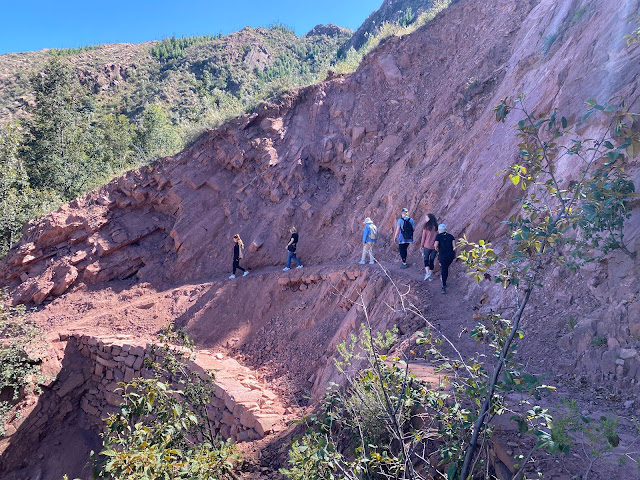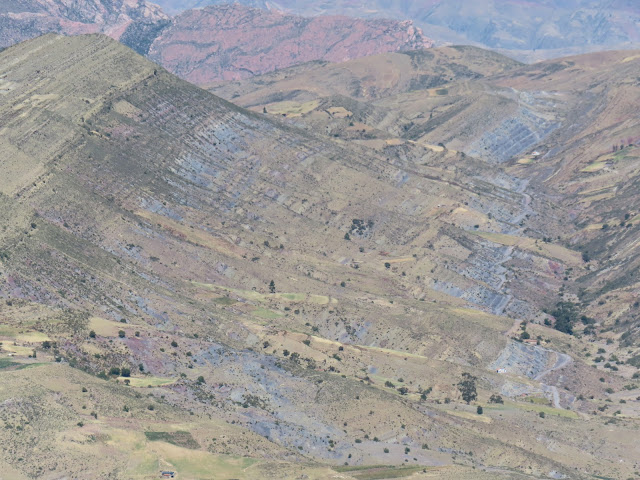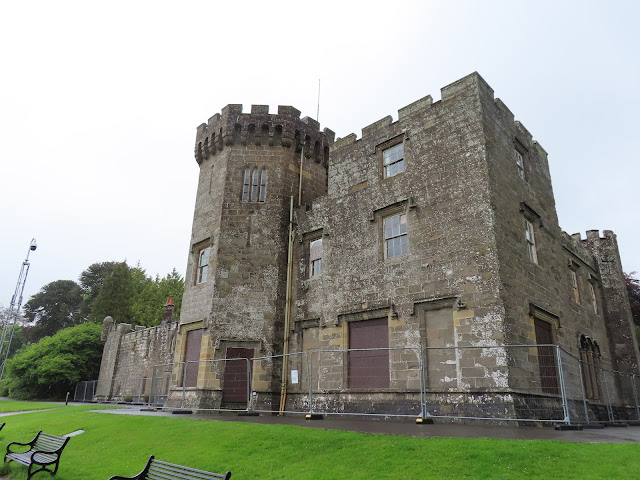Potosi
Potosi
We arrived to nice accommodation after a long bus ride to the terminal and a bit of drama trying to get enough taxis for our group.
Potosi is one of the highest cites in the world at approx 4000m and was one of the largest and wealthiest cities in the world back in the 1600 due to the mining of large amounts of silver.
The following day we set out for a hike along the ancient Incan path known as the Chataquila trek. The trek is relatively easy being that it is mostly downhill though it was really hot. On the way down there was stunning views of the mountains and the volcanic areas.
During our time in Potosi we also visited the mine of Cerro Rico. This was a rather somber experience as we saw the conditions of the miners and heard about the appalling safety record and life expectancy of a miner in this area. The mine has been operating for almost 400 years and is likely to run its course in the next 10-15 years if it doesn't collapse first. The city revolves around the mine so the economic impact for the city will be significant. We also visited the refinery where the precious metals are extracted.
We spent some tome walking around the town and walked up to the roof of a church that gave us some stunning views of the city in all directions. There are some really nice areas and parks that were nicely manicured and cared for with lots of statues - but also some significantly poor areas.
 |
| View of Cerro Rico ("rich mountain") from the roof of the San Larenzo Church |
 |
| Our route from Uyuni to Potosi |
 |
| Walking on one of the Inca trails Chataquila to Chaunca |
 |
| Someone was still maintaining the trail. |
 |
| The landscapes were impressive with interesting land forms and geology |
 |
| This was the edge of a large volcanic crater |
 |
| There were also conifer plantations and some potential wilding issues. |
 |
| Potosi taken on the way back from our walk |
 |
| Low tech toll gate man with a string. I think it was a police check, he wasn't keen on coming out of his shed and made the drivers get out and walk over to him. |
 |
| Maree prepping for the mine visit |
 |
| The girls weren't too sure about Maree's intentions Maddie, Susie and Roseanne |
 |
| We brought coca leaves and alcohol as a gift for the miners |
 |
| Getting briefed for the visit by the guide |
 |
| Amber talking with some of the families at the mine site |
 |
| One of the many mines at the site. You can just see the lights from the miners helmets as they come to the surface |
 |
| This is the mine we entered for a look around |
 |
| Not looking too sure about being down the mine |
 |
| A lot of the work is still done manually. These men were working with wheel barrows and shovels. |
 |
| Visit to the refinery where the raw material was crushed and processed - definitely no health and safety |
 |
| Walking around Potosi some of the buildings dated back to the arrival of the Spaniards in the 1500s and 1600s |
 |
| The city square in Potosi |
 |
| I think this was the monument to the independence from Spain next to the square |
 |
| We were all impressed with the school uniforms |
 |
| The Bolivia Intrepid crew. |
 |
| Some more views from the roof of the San Larenzo Church this time looking towards the Cathedral |
 |
| Church of San Lorenzo de Carangas construction started in the 1500s some very ornate stone sculpture. |






Comments
Post a Comment